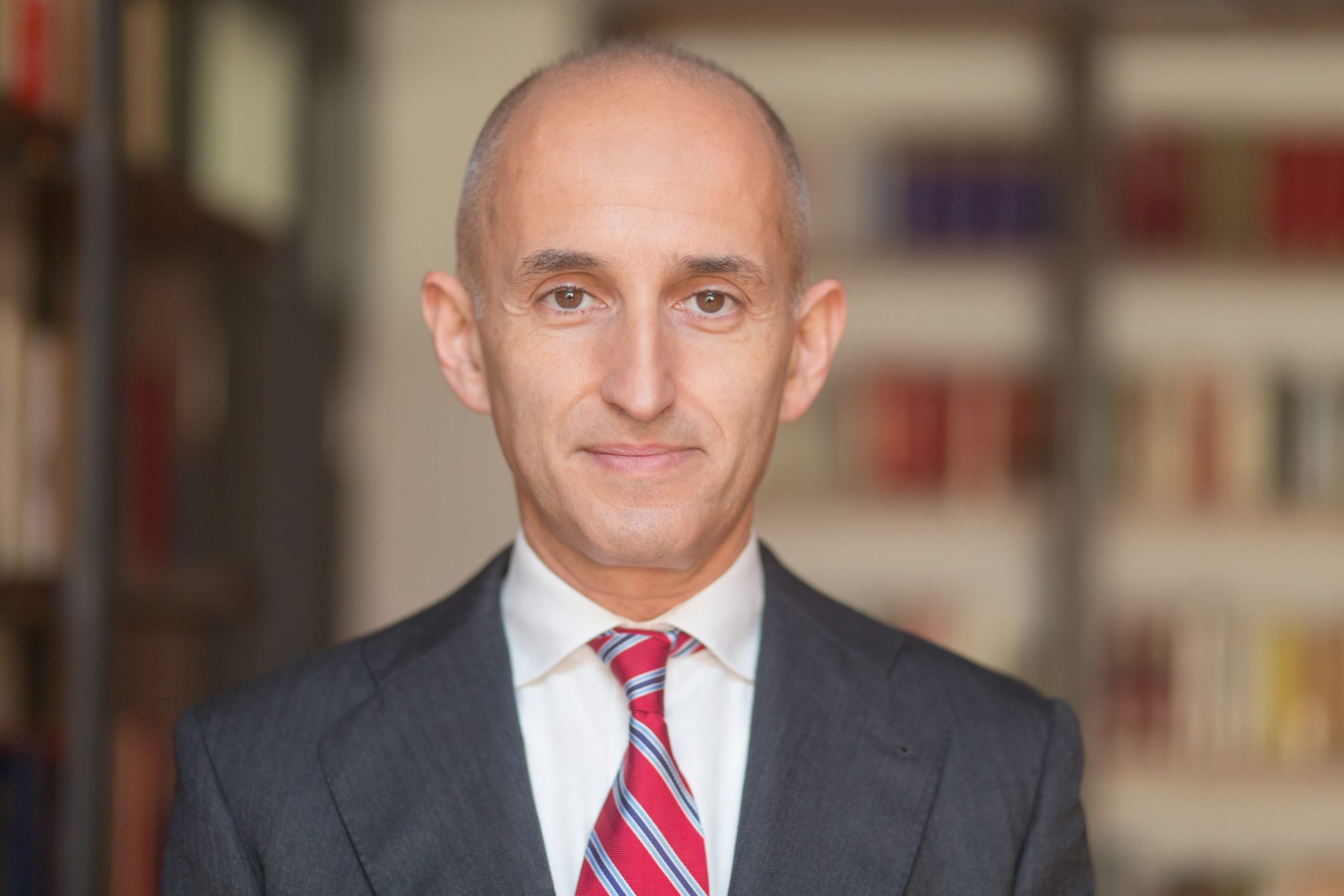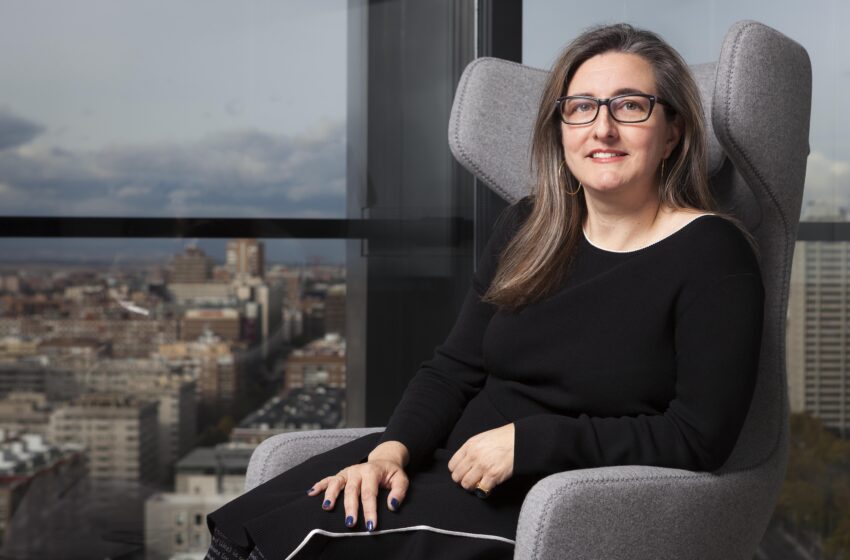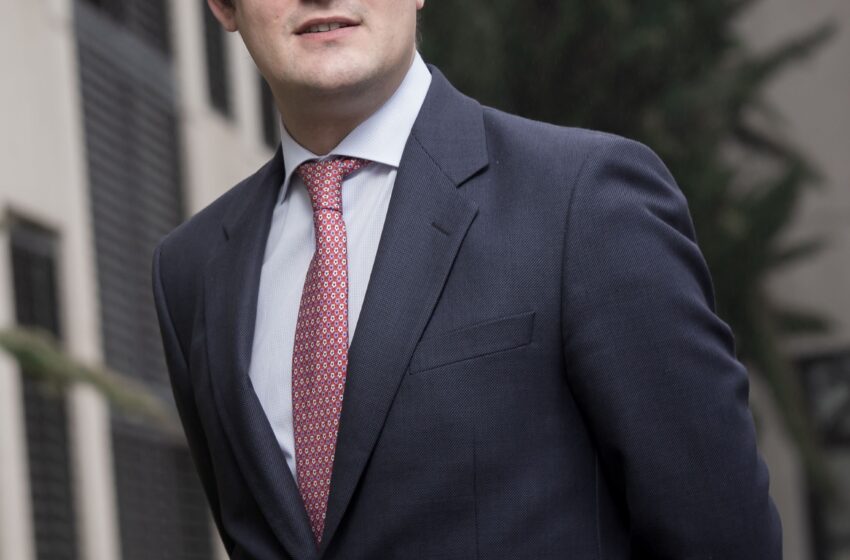Pablo Cubel: “The pleasure is in the journey and it’s better to travel light”

Iberian Lawyer travels to the capital of China to meet Pablo Cubel, managing partner of the Cuatrecasas office in Beijing. In his 22 years with the firm, he has worked in Madrid, Valencia, and his current destination, and he admits that time has passed quickly. This versatile lawyer describes the “Northern capital” as a fascinating city, both from a professional and personal perspective. In an exclusive interview, he tells Iberian Lawyer that his plans for 2021 are to get vaccinated and return.

Three years is enough to know if you like your new destination or not. As a native of Dénia (Valencia), the cultural adjustment to Beijing must have been interesting. What different stages have you experienced since arriving in Beijing as head of the Cuatrecasas office in the Chinese capital?
I spent my first months in China in Shanghai, where we have had an office since 2007. In the Chinese context, it is a relatively easy and pleasant city that facilitates the landing for expatriates. After that initial period, I moved to Beijing—which literally means the “Northern capital”—where we inaugurated our office in 2017, and which is very different. Less skyscrapers and a much more restrained and traditional atmosphere.
China entails a process of adaptation and continuous learning, and your perception of your surroundings is constantly changing. Beijing is fascinating, both from a professional and personal perspective. It is the capital city and the central government’s headquarters, meaning that all the public business conglomerates—that move most of the Chinese economy—are also headquartered there. At first, the city can be intimidating because of its size and apparent uniformity, but its combination of tradition and modernity soon become enthralling.
How is the Cuatrecasas team in China structured at present? Initially, the main objective of these offices was to attract and liaise in Chinese investment transactions in Spain and Latin America. Is that still the case? How has this objective evolved since you arrived in Beijing in 2017? How has the pandemic affected this market?
Our Beijing and Shanghai teams comprise a total of 11 lawyers and two support staff. Our offices in China mainly focus on Corporate (particularly M&A) and Tax. Omar Puertas has been the managing partner of the Shanghai office since it opened, and I am the managing partner of the Beijing office.
At first, when we opened the Shanghai office in 2007, our activity mainly consisted of assisting our clients with their legal needs in the region. As the volume of Chinese foreign investment gradually increased, our activity grew to outbound business, i.e., toward attracting and implementing Chinese investment transactions abroad. The two offices currently participate indistinctly and comprehensively with inbound and outbound transactions. In the case of inbound transactions, we advise our clients on compliance with local laws and regulations, which sometimes involves local law firms. With regard to outbound transactions, we adapt our assistance to client needs. In some cases, we restrict our activity to client acquisition while in others we actively participate in implementing the matter. With the opening of our offices in Latin America in recent years (Bogotá, Lima, Mexico City, and Santiago de Chile), we hope that this cross-border activity is consolidated and business traffic increases, especially in investment transactions between the two continents. In China, Cuatrecasas aims to be the bridge for this business generation between Asia, the Iberian Peninsula, and Latin America, combining our knowledge of the Chinese market that we have accumulated in recent years, and drawing on the cultural and legal proximity that we Spanish and Portuguese have on the American continent.
The pandemic and resulting travel restrictions have obviously affected cross-border M&A, although fortunately, it has had less of an impact in China than was initially expected. China was able to manage the pandemic quickly, minimizing the impact on its economic development, both in the internal arena and—despite the difficulties—in relation to outbound business. Despite the recent intermittent outbreaks, which were quickly controlled, life goes on with a certain normality. The Chinese GDP has continued to grow, unlike other developed economies that have been devastated by the economic standstill.
In your experience, is there more investment from China to Spain and other European countries, or vice versa? And outbound to Latin America?
According to official statistics, the volume of Spanish investment in China in 2020 totalled €120 million, and Chinese investment in Spain totalled €305 million and €4.95 billion in Latin America. However, we should be cautious about assessing these figures because they may not reflect many investment transactions that are conducted from China through investment platforms in other jurisdictions. It is relatively common for Chinese investors to create project companies in places such as Hong Kong, the Netherlands, and Luxembourg, through which to channel their investments to certain regions.
In our case, we do not restrict our activity to the bilateral relationship between Spain and China. We have offices in Portugal, Latin America, and Africa, and we have participated in projects with Chinese clients in Angola, Chile, Colombia, Mexico, Peru, Portugal and Spain. Despite the difficulty I mentioned with measuring investment trends, we believe that outbound Chinese investment volume to the Iberian Peninsula and Latin America will continue to grow in the coming years.
Negotiating in China must be no easy task, and not just because of the language. The culture must be very different to that in the West, as well as the business language, and then there are the differences regarding regulations, law, and tax. As the intermediary in major transactions, how have you had to adjust? What have you found most difficult, and what qualities or characteristics have you had to work on the hardest?
I think the Chinese culture in general, and their business culture in particular; you must value it with prudence and respect. In most cases, approaching relationships and negotiations using western guidelines—if they can be considered as a whole—leads to misunderstandings, poor results and frustration. Although I don’t think that the learning ever ends; in time—and in many cases learning the hard way—you do learn certain do’s and don’ts.
You are a Corporate and M&A lawyer and also have extensive experience in fields such as biotechnology, electronics, logistics and transport, renewable energy, and sports. What type of transactions do the Cuatrecasas offices in China handle? Do they have components in common, and if so, what are they? Could you tell us about some of these transactions; those you consider to be most important recent ones?
The most active areas have been infrastructure, energy, automotive and life sciences. In our particular case, we have participated in transactions in different sectors. In outbound investment, the most notable have been in infrastructure, energy, technology and electronics. With regard to inbound investment, we have experience in the whole supply chain for the automotive industry, including electric car projects; other industrial sectors; and the cosmetics industry, where Spain plays an essential role in the Chinese market.
How does China deal with the push for renewable energy? Are they way ahead of us in that sense? What do they think of us over there? Do they think we are an advanced country on the same level as other European countries, or do they make differences?
Coal-fired power plants are still the main source of energy. However, China is starting to transform its energy model, decarbonizing it and, as in other countries, promoting the accelerated development of technologies and renewable projects to lever economic growth and transformation. There has been significant progress in the renewables industry and Chinese companies are world leaders in producing equipment in different technologies. Traditionally it has led the global market in the photovoltaic industry, with companies like LONGi, Jinko, and Trina. They are also at the forefront of other more complex sectors, such as wind energy where Goldswind, for example, is one of the top companies for installed power. The renewables industry is highly dynamic and constantly changing, which is why it is very difficult to make comparisons. China observes Spain with great interest, not only because of the volume of our domestic market, with a wide margin for growth due to our own decarbonization process, but also because of the quality and experience of our industrial fabric.
The momentum that China has created with electric vehicles, both cars and motorcycles, is remarkable. Aside from analyzing the real impact that transforming the vehicles on the road would have on air pollution and the risks linked to the mass production and use of electric vehicle batteries in the urban environment, the benefit for citizens in reducing noise emission by substituting combustion engines for electric ones is obvious. Beijing is a city of colossal dimensions but has a far lower level of noise pollution that we do. Just the same as now we cannot conceive how a few years ago smoking was freely allowed on planes, buses and in restaurants, a few years from now we will not be able to imagine how we could live with current day levels of noise pollution.
We complain about the level of bureaucracy in Spain when it comes to setting up a business or a company here. What is the system like in that regard in China and, in particular, is there legal certainty?
There is bureaucracy in China, the same as in Spain, in the same way there is legal certainty. China has its own administrative procedures that—through lack of knowledge—can seem long and complicated to foreigners. But I do not think that ours is any less so, nor do I think that our bureaucracy would seem less to a Chinese citizen. Our administrative structure does not help. In Spain, we have been thinking about one-stop systems and mechanisms to facilitate administration for years but, at present, we are still unable to establish a really centralized and agile mechanism. We are getting better, but there is still a lot of room for improvement.
After 22 years in the firm, we imagine that Cuatrecasas feels like your second home. Have you been able to combine a successful career in law, which has included transfers of residence like this last one, with other goals or objectives?
I joined the firm in 1999, after having spent five years in the university environment working on my doctoral thesis, thanks to an FPI grant from the Ministry of Education. In my 22 years with the firm, I have worked in Madrid, Valencia, and Beijing, and it has passed very quickly. I’ve already planted the tree, had the child and written the book. Beyond doing my work well and facilitating the well-being of those around me, I have many other life goals but my ambition is modest. The pleasure is in the journey and it’s better to travel light.
Do you think that the change of presidency in the United States will help to relax tensions between the two great powers?
Without a doubt.
What challenges have you set yourself for 2021? What have you yet to do?
Get vaccinated and return.
By Desiré Vidal
To read the interview in full please download issue N.102 here.












